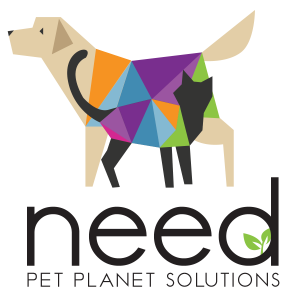Sometimes a sensitive stomach may be a result of an external stimulus, condition, or impact. Understanding what the impacts are, can help Guardians to identify if a sensitive stomach is symptomatic of large issue.
Issues That May Impact Stomach Sensitivities:
Food Allergies
Most allergies, found in our pets, are reactions to proteins in the diet. When a protein is introduced, the body senses it as a foreign entity triggering the immune system to react with a flood of chemicals, almost always causing inflammation of the skin, intense itching, and scratching. Sometimes, these reactions can also cause digestive issues, with symptoms in line with sensitive stomachs.
Food Intolerances
Food intolerances are some of the most common causes of sensitive stomach issues. Unlike a food allergy, an intolerance or sensitivity can be to any ingredient in the diet. It generally causes irritation in the digestive tract increasing the risk of vomiting, diarrhea, excess gas, listlessness, and loss of appetite.
Internal Parasites
Internal parasites are always a threat and are most frequently seen in the younger pets. Sometimes, animals from rescues can suffer from internal and external parasites such as Giardia, hookworms, roundworms, and tapeworms. Cats frequently suffer from Coccidiosis, a single-cell parasite that can cause diarrhea. In short, most require a fecal exam by the veterinarian to diagnose and treat.
Bacterial, Viral, and Fungal Infections
Bacterial, viral and fungal infections can disrupt the pet’s natural microbiome and encourage digestive signs. Similarly to humans, pets have a natural colony of good bacteria, viruses, and fungi in their digestive tract. When harmful bacteria like Salmonella or e-coli get in the system and disrupt the balance, there can be severe digestive signs.
Deficiencies or Excesses Affecting Digestive Health
Supporting your pet’s digestive health is important to helping them maintain a health immunity. Weakened immunity can wreak havoc on many body systems, including the digestive tract. Here are some ways to help your pet remain strong and vigilant against illness and disease:
Nutrition
Provide your pet with highly digestible, biologically appropriate, complete, and balanced total daily nutrition fed in just the proper amount to maintain a slightly lean body conformation and allow for growth in puppies and kittens.
Fiber
Offer adequate levels of fiber to provide the proper volume of material in the gut to promote optimum digestion and a firm and consistent stool.
Pre/Probiotics
Ensure that the diet includes a healthy number and variety of natural Pre and Probiotics, or good bacteria; either from the food itself, or as a form of supplementation, that is essential for proper digestion and absorption of nutrients and immune support. Many Guardians are not aware that some 70% of a pet’s immune system is in the digestive tract and the good bacteria play a crucial role.
Digestive Enzymes
These enzymes are normally produced by the pancreas of the pet. They are designed to break down the proteins, fats, and carbohydrates in the diet so they can be absorbed and utilized by the cells of the body. The more enzymes, the smaller the particles and the more easily they are absorbed. Smaller particles also reduce the risk of food allergies.
Vitamins & Supplements
Optimum levels of vitamins and minerals are essential for every process that goes on in the body. However, most pet food manufacturers include just the minimum levels required to be considered a complete and balanced recipe. Making sure the pet has optimum levels improves resistance and assures maximum efficiency.
Ensuring your pet has all that he/she needs often requires supplementing a diet to achieve the proper balance. We can help you with solutions for foods, treats or vitamins and supplements that can work to best support your pet’s health and immunity.




